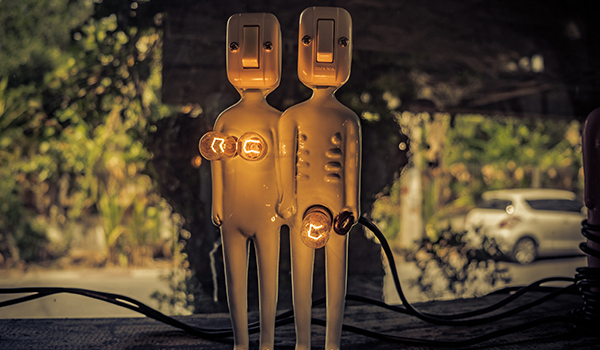Gender Identity Guide

Addison Herron-Wheeler is OUT FRONT's co-publisher and editor-in-chief and friend…
Gender identity has been a very hot topic of late, and it’s something that confuses and bewilders even the most liberal of thinkers. Those who claim in every other way to be completely accepting of LGBTQ individuals end up making ignorant remarks about the trans community. Even those who strive to be friends to their trans pals end up worrying they will say something offensive by accident. I don’t claim to know everything about every single trans person or promise that any type of advice works all across the board, but if you follow these guidelines, you can be respectful to the trans community and dialogue with everyone without offering any offense.
JUST LIKE EVERYONE HAS A DIFFERENT PERSONALITY, EVERYONE HAS A DIFFERENT GENDER IDENTITY
One common mistake when it comes to gender identity is trying to put people in categories or boxes in order to make it easier to understand gender identity. While this may seem helpful at first, it’s actually more hurtful in the long run because everyone’s identity is different, no matter where they land on the scales of gender or sexual preference.
“I identify as a male, and it’s not so much to say I’m male to be in groups with every other guy on the planet because I’m not; we as humans are complex and each beat a different drum,” explained Robbie, a cis gender male who identifies as gay. “Beyond the physicality, gender is a big mental state. Your brain is just as important as your body, so being yourself is more than just looking; it’s being.”
Not every trans person is binary (identifying as male or female)
Many believe that every trans person is transitioning in the most basic sense of the word, identifying as either male or female. But that isn’t the case. Plenty of individuals identify outside of the gender binary as agender or nonbinary and don’t wish to be assigned either female or male pronouns.
“I first came out as nonbinary, which met with a lot of disapproval and confusion, so I did what I’m sure others have, and went full throttle into trans man,” Oliver, who identifies as agender, but sometimes accepts he/his/him pronouns, said. “Unfortunately this was to fit into expectations as a trans person, and never really felt quite right. As I get older and more sure of myself, the comfort of androgyny without gender implications has overridden my fear of confrontation.”
Listening goes an incredibly long way
This may all seem complicated to those who have always identified as cis and never questioned their identity, but that doesn’t mean it actually has to be. Simply listening to what a trans person has to say is all you need to do to understand their gender preference. This doesn’t mean you need to turn every conversation with a trans person into a Q&A session, but if you have questions for someone you are close with or they want to talk, then lend an ear.
“Trans people aren’t all the same, but overall we want to be heard and treated as people,” Oliver said. “If someone tells me they want specific pronouns or a different name, even if it’s something they’re still figuring out, I listen to them because I am not them.”
Respecting wishes is key, as with anyone
Respecting others may seem like a preschool-level lesson, but it can be trickier than you think when it comes to how a trans person wants to be talked to.
“The kinds of dodgy bullshit people get up to when they say stupid shit like, ‘Your gender is female but your sex is male,’ ‘Well I can still refer to you with this other name/pronoun because you were that person for most of your life,’ or whatever is a bunch of garbage,” explained Drew, who identifies as a trans woman. “It’s hateful and it shows fundamental disrespect to who a person is.”
Don’t attempt to fully understand gender—it’s complex and not easy to define
If you’re anything like me, an inquiring mind, a journalist, then you want to understand what it’s like to be trans or nonbinary and how it feels not to identify as cis. You want to fully grasp it so you can be a better ally and advocate. You can’t.
If you aren’t a trans or nonbinary person, you don’t know what they are going through, period. And that’s fine. The important thing is to listen, ask questions when appropriate or necessary, and give every human the respect they deserve in regards to how they want to be addressed and treated.
What's Your Reaction?
Addison Herron-Wheeler is OUT FRONT's co-publisher and editor-in-chief and friend to dogs everywhere. She enjoys long walks in the darkness away from any sources of sunlight, rainy days, and painfully dry comedy. She also covers cannabis and heavy metal, and is author of Wicked Woman: Women in Metal from the 1960s to Now and Respirator, a short story collection.










